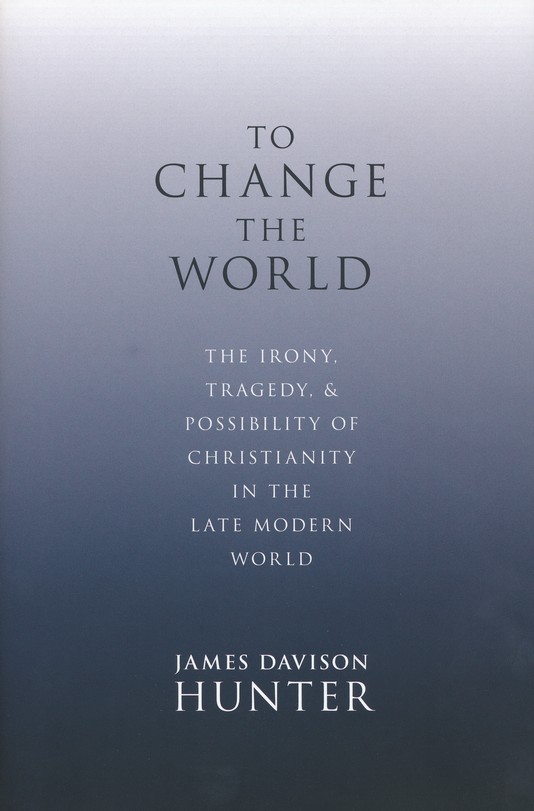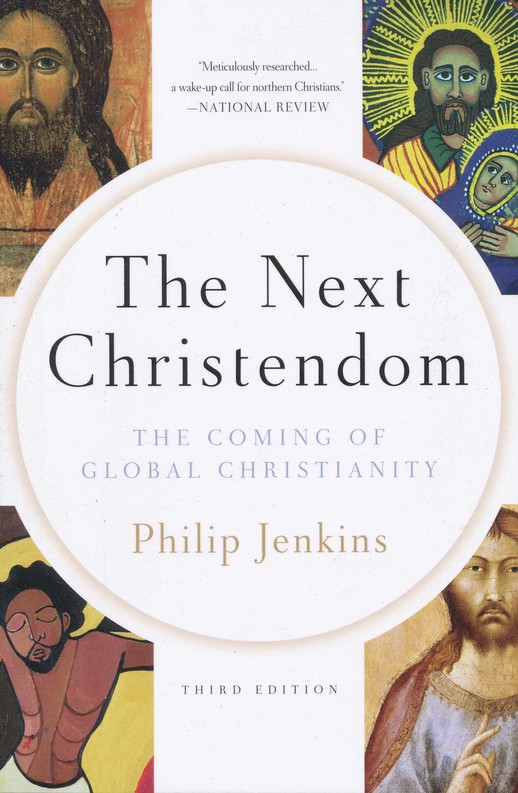Two astounding, must-read books from my D.Min. program have newly illuminated how small I am.
The first is James Davison Hunter’s To Change the World: The Irony, Tragedy, and Possibility of Christianity in the Late Modern World. Hunter adroitly demonstrates how quantity and even quality of cultural output does not shape a culture, nor does the size of the consumer base. Rather, the culture is shaped by the few institutions, locations, and social circles that all, including those who resent them, tacitly agree are more prestigious than the rest.
I am small and far from these high points. I am not close to the center of my denomination’s culture. I am unimportant to the evangelical subculture—you won’t see my mug on conference junk mail anytime soon. I live in an ignored part of the country. Almost no one in any of my subcultures has the regard of elites in Hollywood, Harvard Yard, and Midtown Manhattan.
I am small in another direction too, as revealed by Philip Jenkins’ The Next Christendom: The Coming of Global Christianity. As Christianity drains out of Europe, it is exploding in Latin America, Africa, and Asia, partly because of the fecund demographics of those regions but also through a burgeoning wave of conversions. Christianity in the United States is holding steady because of help from immigration from those continents as the faith resumes its ancient position as one of the great Eastern religions. The awakening and the miraculous seem to be going on almost everywhere but here, and I can’t read Jenkins’ statistics about ten million of this and a hundred million of that for long before feeling very small again.
I don’t call myself small out of self-pity—well, I hope I don’t—but from a healthy dose of reality for the sake of humility. I need that. But this is not the whole story.
No matter whom I am small by comparison to, I am big to someone else. My town, a modestly affluent county seat, gets more undeserved attention than any other in my region. I’m an evangelical nobody, but unlike many I actually know a few somebodies, and they know even better-known somebodies. And wherever I live in the United States, to the Mexican believer peering around our southern wall I’m at the center of it all.
More importantly, no matter how small I am in my profession because I see only fifty people on a Sunday, I am huge to those fifty people. My significance is enormous to the sick for whom I pray, the weary to whom I speak the gospel of hope, and the children who call me pastor. And to my own children and to my wife, I’m colossal—to them, whether or not I exist is the whole world.
Finally, and most importantly, I am staggeringly valuable to the infinitely large God. As David observed, his thoughts about me are beyond comprehension—not only their number and their content but his desire to think about me at all.
At the beginning of Matthew 2, men come from a foreign power to find the king of the Jews, whose birth alarms Jerusalem’s elite and triggers a state crisis. At the end of the chapter he is called a Nazarene, a no-name denizen of a backwater town.
The paradox of Jesus’ incarnation is not only metaphysical—the union of complete and unadulterated deity and humanity in one person. It is a cultural paradox too: the one who is the center of all things lives simultaneously at the extreme margin; he really bears the name above every name while he really is a no-name. This both-and image is the one that God is conforming me to—I shrink while I expand, plunging lower, rising higher.


Cory,
ReplyDeleteIt's great to see a post from you. Fear not! Like that mustard seed, you may not know just how big it turns out. I've one word ...
Telemachus.
Talk soon and Merry Christmas!
Bill